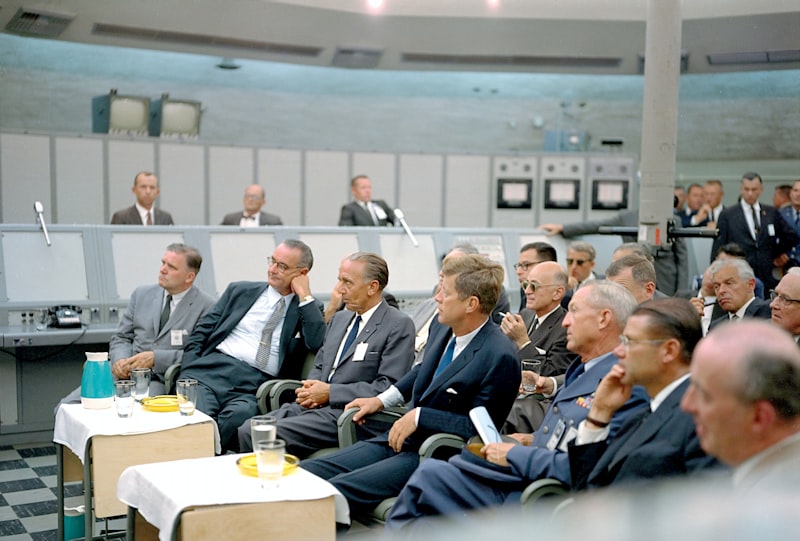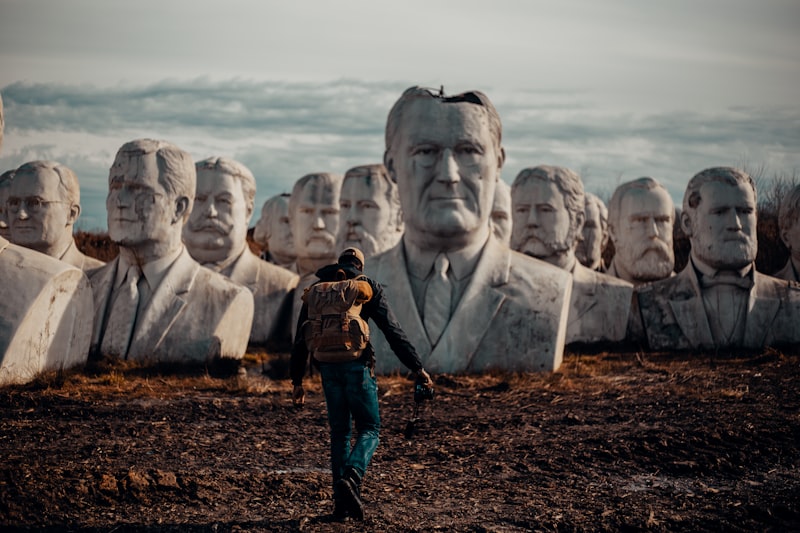Ever wondered how the early U.S. presidents shaped the nation we know today? Let’s delve into their lives and legacies to uncover their profound impact on American history.
George Washington, the first president, set the precedent for the presidency itself. Known as the “Father of His Country,” Washington’s leadership during the Revolutionary War and his two terms as president established crucial norms, such as the peaceful transfer of power and the importance of national unity. His Farewell Address warned against political factions and foreign entanglements, shaping America’s foreign policy for decades to come.

Thomas Jefferson, the third president, expanded the young nation’s territory with the Louisiana Purchase in 1803. His belief in agrarian democracy and individual liberty laid the foundation for westward expansion and the growth of American ideals. Jefferson’s presidency marked a shift towards a more democratic style of governance, emphasizing the importance of education and the rights of states.
Abraham Lincoln, the sixteenth president, guided the nation through its greatest crisis, the Civil War. His leadership preserved the Union and ended slavery with the Emancipation Proclamation, forever altering the course of American society. Lincoln’s eloquence in speeches like the Gettysburg Address and his commitment to equality underlined his legacy as a symbol of national unity and moral clarity.
These early presidents each brought unique qualities and challenges to the White House, shaping the presidency and the nation in profound ways. From establishing fundamental democratic principles to expanding the nation’s borders and confronting deep-seated divisions, their impact resonates through American history. Their stories remind us of the enduring importance of leadership, vision, and resilience in shaping the destiny of a nation.
Forgotten Legacies: Rediscovering the Early U.S. Presidents
Have you ever wondered about the lesser-known stories of the early U.S. Presidents? Beyond the familiar faces like Washington and Jefferson, there’s a rich tapestry of leaders who played pivotal roles in shaping America. Let’s take a journey through history to rediscover these remarkable figures.
John Adams, the second President of the United States, often stands in the shadow of George Washington. Yet, Adams was instrumental in guiding the young nation through its formative years. His advocacy for independence and his diplomatic efforts abroad laid the groundwork for America’s global presence.
Thomas Jefferson, known as the author of the Declaration of Independence, was also the third President. His vision for a nation of farmers and intellectuals shaped early American identity. Jefferson’s belief in individual rights and educational reform left an indelible mark on the nation.
James Madison, the “Father of the Constitution,” became the fourth President. His leadership during the War of 1812 solidified America’s sovereignty and laid the groundwork for modern constitutional law. Madison’s commitment to a strong federal government balanced with individual liberties shaped American governance.
James Monroe, the fifth President, is perhaps best known for the Monroe Doctrine. This foreign policy declaration asserted American influence in the Western Hemisphere, setting the stage for America’s role as a global power. Monroe’s presidency was marked by a spirit of nationalism and expansionism.
These early Presidents each contributed uniquely to the fabric of American history. From Adams’ diplomatic acumen to Jefferson’s intellectual pursuits, Madison’s constitutional insights to Monroe’s global vision – their legacies endure, albeit sometimes overshadowed by more celebrated figures.
As we reflect on these forgotten legacies, we gain a deeper appreciation for the diverse leadership that shaped the United States. Their contributions, though sometimes overlooked, are integral to understanding the evolution of American ideals and governance.
Charting the Course: How Early Presidents Shaped America
The history of the United States is intricately woven with the legacies of its early presidents, whose leadership laid the foundation for the nation we know today. From George Washington to Thomas Jefferson and beyond, each president left an indelible mark on American history through their policies, decisions, and visions for the future.
George Washington, the first President of the United States, set the precedent for the office with his commitment to unity and governance. His leadership during the Revolutionary War and his role in establishing a stable federal government under the Constitution earned him the title of the “Father of His Country.” Washington’s emphasis on national unity and the importance of a strong central government shaped early American politics and institutions.
Following Washington, John Adams took office as the second President. Adams’ presidency was marked by his efforts to maintain American neutrality amidst European conflicts and to strengthen federal authority. His tenure saw the passage of the Alien and Sedition Acts, controversial laws aimed at protecting national security during a time of international tension.
Thomas Jefferson’s presidency represented a shift in American politics, marking the transition from Federalist to Democratic-Republican leadership. Jefferson’s vision of an agrarian society guided his policies, including the Louisiana Purchase, which doubled the size of the United States and expanded its territorial influence across North America. Jefferson’s commitment to expanding westward and promoting agrarian interests shaped the geographical and economic landscape of the young nation.
James Madison, known as the “Father of the Constitution,” became the fourth President of the United States and navigated the nation through the challenging War of 1812 against Great Britain. Madison’s presidency underscored the importance of defending American sovereignty and protecting national interests, contributing to the growth of American identity and resilience.

These early presidents, among others, played pivotal roles in shaping the course of American history, laying down principles of governance, diplomacy, and expansion that continue to resonate in the present day. Their legacies serve as a testament to the enduring impact of leadership and vision in shaping a nation’s identity and trajectory.
From Washington to Monroe: Unveiling America’s Early Leadership
America’s journey from colonial beginnings to a fledgling nation saw remarkable leaders emerge, shaping its destiny with vision and determination. Among these early figures, George Washington stands as a towering symbol of leadership and resilience. As the first President of the United States, Washington navigated the challenges of nation-building with a steady hand, establishing precedents that would define the office for generations.
Washington’s leadership extended beyond political strategy; he embodied the ideals of the American Revolution, emphasizing unity, integrity, and civic virtue. His Farewell Address famously cautioned against the perils of political factionalism and foreign entanglements, setting a precedent for future leaders to prioritize national unity above partisan divides.
Following in Washington’s footsteps, John Adams and Thomas Jefferson each brought their unique contributions to the nascent republic. Adams, the second President, steered the nation through turbulent times, including the Quasi-War with France, while championing the principles of a strong federal government. Jefferson’s presidency marked a transformative era, known for the Louisiana Purchase and the Lewis and Clark Expedition, which expanded the nation’s territorial boundaries and scientific knowledge.

James Madison, hailed as the “Father of the Constitution,” guided the nation through the War of 1812, defending American sovereignty and securing international respect. His efforts laid the groundwork for a stronger federal government and a robust national defense.
James Monroe’s presidency ushered in an era of American expansionism and ideological confidence, encapsulated in the Monroe Doctrine of 1823. This policy asserted American influence in the Western Hemisphere, warning European powers against further colonization efforts and reinforcing the nation’s commitment to self-determination.
The early leaders of America navigated complex challenges with foresight and fortitude, leaving an indelible mark on the nation’s history. Their collective vision and dedication shaped the United States into a beacon of democracy and opportunity, setting the stage for future generations to uphold and expand upon their legacy.
The Founders’ Footsteps: Tracing Early U.S. Presidents’ Influence
George Washington, revered as the first president, set crucial precedents that defined the presidency’s role. His leadership during the Revolutionary War and his decision to step down after two terms established the principle of a peaceful transfer of power, a hallmark of American democracy.
Thomas Jefferson’s presidency marked a period of expansion and enlightenment. His authorship of the Declaration of Independence reflected not only his eloquence but also his commitment to liberty and individual rights. Jefferson’s vision for an agrarian society shaped early American policies and territorial acquisitions, including the Louisiana Purchase, which doubled the size of the United States.
Abraham Lincoln’s presidency during the Civil War is remembered for his steadfast leadership and the Emancipation Proclamation, which declared the freedom of slaves in Confederate-held territories. Lincoln’s dedication to preserving the Union and his vision of a more inclusive America resonate profoundly in the nation’s collective memory.
Theodore Roosevelt’s progressive era presidency redefined the government’s role in regulating big business and conserving natural resources. His advocacy for national parks and antitrust laws reflected a commitment to social justice and environmental stewardship, shaping America’s conservation movement for generations.
These early presidents’ influences continue to echo through American politics, culture, and society. Their leadership styles, policy decisions, and enduring legacies offer timeless lessons in resilience, vision, and the pursuit of a more perfect union.
Behind Closed Doors: Secrets of America’s First Presidents Revealed
Have you ever wondered what really went on behind the closed doors of America’s earliest leaders? The history books may tell one story, but there’s often more intrigue lurking beneath the surface. From George Washington to Thomas Jefferson and beyond, America’s first presidents had their share of secrets that shaped the course of history.
Let’s start with George Washington, the towering figure of the American Revolution. Beyond his public persona as the first President, Washington was known for his meticulous attention to detail and strategic acumen. But behind closed doors, he grappled with the complexities of slave ownership, a moral conflict that echoed throughout his presidency. His private letters reveal a man torn between ideals of freedom and the economic realities of his time.
Moving on to Thomas Jefferson, the author of the Declaration of Independence and a pioneer of American democracy. Jefferson’s public image as a champion of liberty often overshadowed his private life. Behind closed doors, he was a complex figure, deeply involved in science, architecture, and philosophy. Yet, his relationship with slavery, particularly his ownership of hundreds of slaves, continues to spark debate over his legacy.
James Madison, known as the “Father of the Constitution,” played a pivotal role in shaping the foundations of American government. Behind closed doors, Madison faced challenges that tested the very principles he helped enshrine. His presidency saw the War of 1812, a conflict that revealed the young nation’s vulnerabilities and reshaped its international standing.
Abraham Lincoln, often revered as one of America’s greatest presidents, navigated the nation through its darkest hour—the Civil War. Behind closed doors, Lincoln grappled with the weight of leadership during a time of profound national crisis. His decisions, from emancipation to the preservation of the Union, laid the groundwork for a more inclusive vision of America’s future.
Presidential Pioneers: Innovations and Challenges of Early Leadership

Have you ever wondered what it takes to be a trailblazer in the highest office of the land? The early leaders of the United States, known as Presidential Pioneers, faced a unique set of innovations and challenges that shaped the nation’s history.
Imagine stepping into the shoes of George Washington, the first President of the United States. Back in 1789, the role of the President was still being defined. Washington had to establish precedents that would guide future leaders while navigating the complexities of a young democracy. His leadership set the tone for the presidency as an institution of authority and responsibility.
One of the key innovations of early presidential leadership was the establishment of a Cabinet. Washington brought together advisors from different backgrounds to provide expertise and counsel on crucial matters such as foreign policy, finance, and defense. This framework not only helped in decision-making but also laid the groundwork for a structured executive branch.
However, it wasn’t all smooth sailing. Thomas Jefferson, the third President, faced the challenge of the Louisiana Purchase in 1803. This monumental acquisition doubled the size of the United States overnight but raised questions about the extent of presidential power and the interpretation of the Constitution. Jefferson’s decision to proceed with the purchase showcased bold leadership but also sparked debates that continue to resonate today.
Moving forward to Abraham Lincoln’s presidency, the nation was embroiled in the Civil War. Lincoln’s innovative use of executive authority to preserve the Union and abolish slavery forever changed the course of American history. His leadership during this turbulent period demonstrated the immense responsibilities and moral dilemmas faced by presidents in times of crisis.
Presidential pioneers not only tackled domestic issues but also navigated the complexities of international relations. Theodore Roosevelt’s bold foreign policy initiatives, often referred to as “Big Stick Diplomacy,” showcased America’s emerging role as a global power. Roosevelt’s approach to diplomacy laid the groundwork for future presidents to engage assertively on the world stage.
Building a Nation: Early Presidents and Their Nation-Building Strategies
George Washington, the first President of the United States, set the tone for nation-building with his emphasis on unity and stability. His leadership during the Revolutionary War and his subsequent presidency focused on establishing a strong federal government capable of ensuring national security and economic stability. Washington’s administration prioritized the creation of institutions such as the Treasury Department and the establishment of a national bank, which laid the financial framework essential for the young nation’s growth.

Following Washington, Thomas Jefferson’s presidency marked a shift towards territorial expansion and cultural integration. Jefferson’s vision of an agrarian society tied to westward expansion led to the Louisiana Purchase, doubling the size of the United States. His administration also promoted scientific exploration through the Lewis and Clark Expedition, which mapped and surveyed the vast western territories acquired under his leadership.
James Madison, known as the “Father of the Constitution,” continued the nation-building efforts by solidifying the legal and governmental foundations of the United States. His presidency oversaw the War of 1812, a pivotal conflict that asserted American sovereignty and defended national interests against foreign threats. Madison’s support for infrastructure projects such as the construction of roads and canals further connected the growing nation and facilitated commerce between states.
Each early president’s strategies in nation-building reflected their unique visions and challenges of their times, shaping the United States into a cohesive and resilient nation. Their efforts to establish governmental institutions, expand territorial boundaries, and promote economic growth laid the groundwork for America’s emergence as a global power in the centuries that followed.
Frequently Asked Questions
How did Andrew Jackson change the role of the President?
Learn how Andrew Jackson transformed the presidency, expanding executive powers and emphasizing direct connection with the American people. Discover his impact on shaping modern presidential authority and the evolution of American democracy.
What impact did Thomas Jefferson have on American democracy?
Discover the profound impact of Thomas Jefferson on American democracy through his advocacy for individual rights, religious freedom, and the expansion of democratic ideals. His contributions as a Founding Father and author of the Declaration of Independence shaped the foundational principles of the United States.
What were the key policies of James Madison and their significance?
Explore the key policies of James Madison, highlighting their significance in shaping early American governance. Discover Madison’s contributions to constitutional principles, including federalism, separation of powers, and the Bill of Rights, which remain foundational in American political thought.
How did George Washington shape the presidency and the nation?
Learn how George Washington’s leadership laid foundational principles for the U.S. presidency and nation-building, setting precedents in governance, diplomacy, and national unity.
Who were the first five U.S. Presidents and what were their contributions?
Learn about the first five U.S. Presidents and their contributions in American history.


